(soft music) – [Instructor] Hey Psych2goers, and welcome back to another video. Before we start, we would
like to give you a big thanks for all the support that you’ve given us. Psych2gos mission is to make
psychology and mental health more accessible to everyone. Now let’s begin. Are you extremely afraid
of being judged by others? Are you very self-conscious
in everyday social situations? Do you avoid meeting new people? These are all trademark
signs of social anxiety, which affects approximately
15 million people in the United States alone. Social anxiety disorder is classified as a significant amount
of fear, embarrassment, or humiliation in social or
performance-based situations. It goes far deeper than mere shyness, where shyness is more
of a personality trait, Social anxiety disorder can
cause significant disruption of your daily life. Before we begin, we would like to mention that this video is created
for educational purposes only, and is not intended to substitute
a professional diagnosis. If you suspect you may have
social anxiety disorder or any mental health condition, we highly advise you to seek help from a qualified mental
health professional. With that said, here are nine things that social anxiety makes us do. One, repeatedly double-checking the location and time. Do you find yourself
repeatedly checking your phone to make sure you’re in the right place? It can be terrifying for
those with social anxiety to arrive late or walk
into the wrong room, so double or even triple-checking information is a must. Even if you know you’ve
got the details right, it can bring you peace of
mind just to make sure, it may be the difference between
walking in with confidence or hesitation. Two, rehearsing conversations
in your head ahead of time. While this may be a
subconscious practice at first, many people who face social
anxiety rehearse things they’re going to say before they have the actual conversation. This often begins as
imagining future conversations or running through a list of
important points to discuss. Some people find it more helpful to physically practice having
a conversation as well. That being said, not
everyone who rehearses their conversations beforehand, necessarily has social anxiety. Memorization and practice
are both common tools to aid you in feeling nervous, whether you’re anxious
about public speaking, talking to a specific person, or being social in general. Number three, avoiding phone calls. Even though it’s become a bit of a joke among millennials and Gen
For those who prefer to text, avoiding phone calls is
a fairly common behavior for people with social anxiety. Psychologist, Lindsay
Sharfstein told Headspace, that anxiety is typical for all of us, it’s a universal emotion
that we can all relate to. For the most part, we
know that individuals are not afraid of phones, they have phones in their
office, backpack, and purse, what they’re typically afraid of is the evaluation or
judgment that may happen when they’re on a phone. This may be why some
people prefer to text, instead of talk on the phone. The more one can put between themselves and the other person, the more comfortable they generally feel interacting. Four, faking phone calls. Have you ever pretended to
be in the middle of a call just to avoid talking to someone, or worn headphones to discourage others from approaching you? Although it’s safe to
assume that phone calls are not something that
people with social anxiety look forward to, faking
a call can come in handy. It can be a lot easier to act busy rather than face the awkwardness of an unwanted conversation, so this can become a habit of avoidance if you have social anxiety. Five, constantly worrying
about how everyone sees you. According to the Anxiety
and Depression Association of America, those with a
social anxiety disorder are increasingly concerned about how they are perceived by others.

The last thing they want
is to come off as awkward, fumbling, or boring. You’ve likely felt this way at some point throughout your life, whether it’s the desire
to fit in with friends or make a good impression
on a potential employer, with social anxiety however, this pressure to perform
feels constantly heavy and can lead to full-blown panic attacks when in social or
performance-based situations. Number six is feeling lonely, even when you’re surrounded by people. People with social anxiety
can share this feeling with those who battle depression and other mental illnesses as well. So, unfortunately, a lot
of people can relate to this isolating feeling. When social anxiety keeps you
from being your true self, it can be difficult to
feel included at all. It’s frustrating to be close to others, but not be able to connect
with them comfortably. If you’re struggling
to properly communicate and are extremely hesitant
to even start a conversation, that adds to your feelings of loneliness, even when you’re surrounded by others. Number seven, clenching your teeth and other physical discomforts. You feel shaky or lightheaded when faced with a social situation. Does your heart rate speed
up, or do your hands tremble? The stress that comes with social anxiety can manifest through physical symptoms. Many of the symptoms are
signs of nervousness, such as sweating, flushing,
and feeling shaky. According to the Mayo Clinic, you might also be dealing
with muscle tension, feeling that your mind has gone blank, or having trouble catching your breath. Number eight, obsessing over how you look. When you’re constantly worried about how others perceive you, you’re likely to be concerned
with how you look as well. You might have a distorted body image and think that you’re less
physically attractive. Your thoughts can flit from
your hair to your clothes or flaws in your skin, thinking
that it’s just all wrong. In an attempt to feel
comfortable in your skin, you might spend an inappropriate
amount of time and money on fixing your appearance, such as shopping for better clothes, getting high-end beauty
products, or going on diets if you think you’re overweight. And number nine, you
feel more like yourself around the people you’re comfortable with. You think you’re picky about
who you spend time with and triumph over shyness, conquering social anxiety disorder, Dr. Marie B. Stein and John R. Walker discuss behavior in children
called selective mutism. This is when a child
speaks and acts normally around select individuals,
but is completely silent around everyone else, or when
placed in certain situations, this is a more extreme example, but it shows how those with social anxiety are more likely to relax and open up around people they already know and trust. Do you or anyone you know resonate with any of these points
mentioned in this video? If you’re concerned about
social anxiety disorder, we encourage you to speak with
a mental health professional, they can help you overcome any fears or debilitating problems you might have. If you enjoyed watching this
video, give us a thumbs up and share it with someone who
might find it helpful as well. The studies and references
used in this video are listed in the description below. Don’t forget to hit the subscribe button for more Psych2go videos and as always, thanks for watching, and we’ll see you next time.
As found on YouTubeAFFILIATE MASTERY BONUS: 6-Week LIVE Series Has Begun!
FunnelMates $46.⁹⁵ Replays are Instantly Available. Want A Profitable Mailing List But Not Sure Where To Begin? We’ll Guide You, Equip You, and even PAY You Cash To Do It!

☃in 5-10 Minutes A Day Using Automation Software and our Time-Tested Strategy See How Your New Site Can Be Live In Just 27 Seconds From Now!







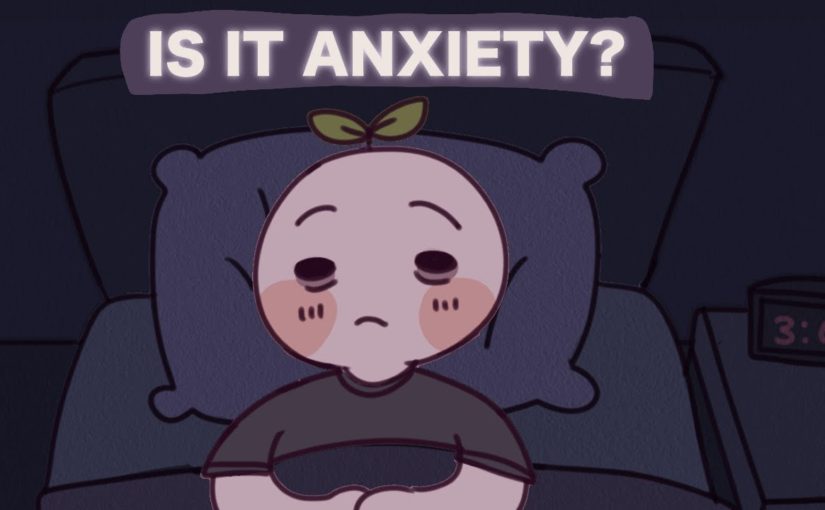
 Research also found connections
between anxiety disorders and changes in a person’s sleep cycles. When you’re anxious and
ruminate before sleep, this affects rapid eye
movement or REM sleep, which may induce more unsettling dreams and result in a higher likelihood
of sleeping disruptions. Having nightmares during sleep may also reinforce a negative association between dread and sleep. Number four. You use fear language. Do a lot of your sentences start with, “I’m concerned, I’m
afraid, or I’m worried?” According to a licensed
clinical psychologist, Alicia H. Clark, PsyD PLLC, “The regular use of such phrases “may indicate a deeper problem. “Even though it may sound normal, “sometimes this fear language
can be a sign of anxiety “that is most often brushed off.” Number five. You’re not able to sit still. Can you be still when you’re sitting down? Perhaps you can’t help but tap your foot or scrum around in your chair. According to Dr. Clark, being restless and unable to sit still can be a subtle sign of anxiety. However, it’s important to note that being unable to sit still can also be a classic example of attention deficit
hyperactivity disorder, ADHD, since sitting down is an
under-stimulating task that is unrewarding to the brain. Number six. You apologize excessively. Do you say sorry a lot? Another sign of anxiety
is when a word of apology comes too often and easily, even when it’s not your fault or when it’s out of your control. With anxiety, you may find yourself still over-apologizing for the situation. According to Dr. Juliana Breines, an Assistant Professor of Psychology at the University of Rhode Island, “If you’re always hard on yourself “and have a tendency to
beat yourself up for things, “then it’s likely “you’ll also tend to over-apologize.” And number seven, you
forget important details. Are you always told off for
overlooking small details and making small mistakes? Sometimes, when you have anxiety, you may feel overwhelmed with thoughts, such as about how things may go wrong that you end up not paying attention to the things happening around you. This can make you overlook crucial moments in detail that are important. So if you find yourself
missing important details or forgetting crucial
information a lotta the time, it may be a sign of anxiety. What do you do when you’re anxious? Let us know in the comments below. If you found this video helpful, be sure to like, subscribe, and share this video with those
who might benefit from it, and don’t forget to hit
the notification bell icon to get notified whenever
Psych2Go posts a new video. The references and
studies used in this video are added in the description below. Thanks for watching and we’ll
see you in the next one. (lighthearted music).
Research also found connections
between anxiety disorders and changes in a person’s sleep cycles. When you’re anxious and
ruminate before sleep, this affects rapid eye
movement or REM sleep, which may induce more unsettling dreams and result in a higher likelihood
of sleeping disruptions. Having nightmares during sleep may also reinforce a negative association between dread and sleep. Number four. You use fear language. Do a lot of your sentences start with, “I’m concerned, I’m
afraid, or I’m worried?” According to a licensed
clinical psychologist, Alicia H. Clark, PsyD PLLC, “The regular use of such phrases “may indicate a deeper problem. “Even though it may sound normal, “sometimes this fear language
can be a sign of anxiety “that is most often brushed off.” Number five. You’re not able to sit still. Can you be still when you’re sitting down? Perhaps you can’t help but tap your foot or scrum around in your chair. According to Dr. Clark, being restless and unable to sit still can be a subtle sign of anxiety. However, it’s important to note that being unable to sit still can also be a classic example of attention deficit
hyperactivity disorder, ADHD, since sitting down is an
under-stimulating task that is unrewarding to the brain. Number six. You apologize excessively. Do you say sorry a lot? Another sign of anxiety
is when a word of apology comes too often and easily, even when it’s not your fault or when it’s out of your control. With anxiety, you may find yourself still over-apologizing for the situation. According to Dr. Juliana Breines, an Assistant Professor of Psychology at the University of Rhode Island, “If you’re always hard on yourself “and have a tendency to
beat yourself up for things, “then it’s likely “you’ll also tend to over-apologize.” And number seven, you
forget important details. Are you always told off for
overlooking small details and making small mistakes? Sometimes, when you have anxiety, you may feel overwhelmed with thoughts, such as about how things may go wrong that you end up not paying attention to the things happening around you. This can make you overlook crucial moments in detail that are important. So if you find yourself
missing important details or forgetting crucial
information a lotta the time, it may be a sign of anxiety. What do you do when you’re anxious? Let us know in the comments below. If you found this video helpful, be sure to like, subscribe, and share this video with those
who might benefit from it, and don’t forget to hit
the notification bell icon to get notified whenever
Psych2Go posts a new video. The references and
studies used in this video are added in the description below. Thanks for watching and we’ll
see you in the next one. (lighthearted music).
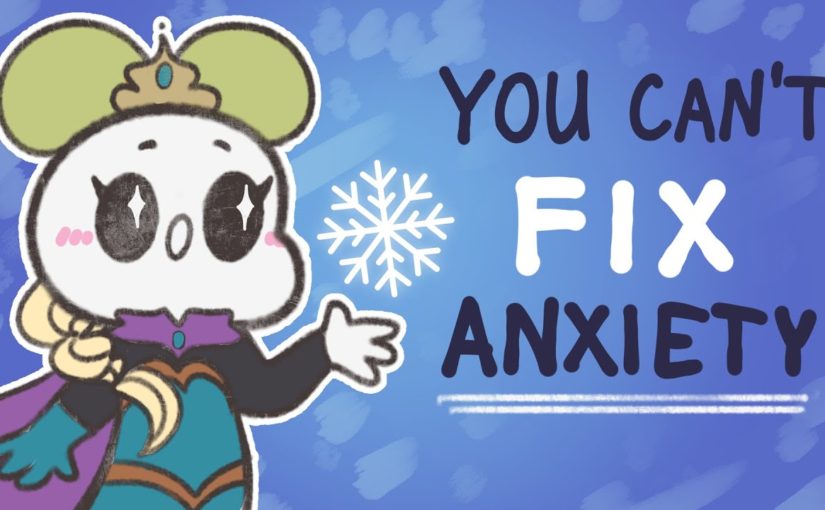
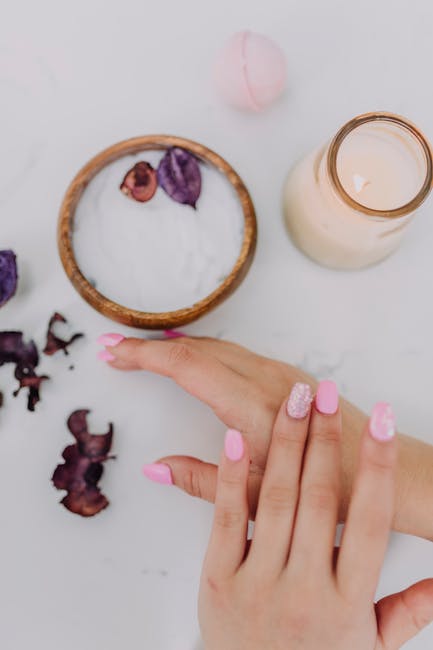

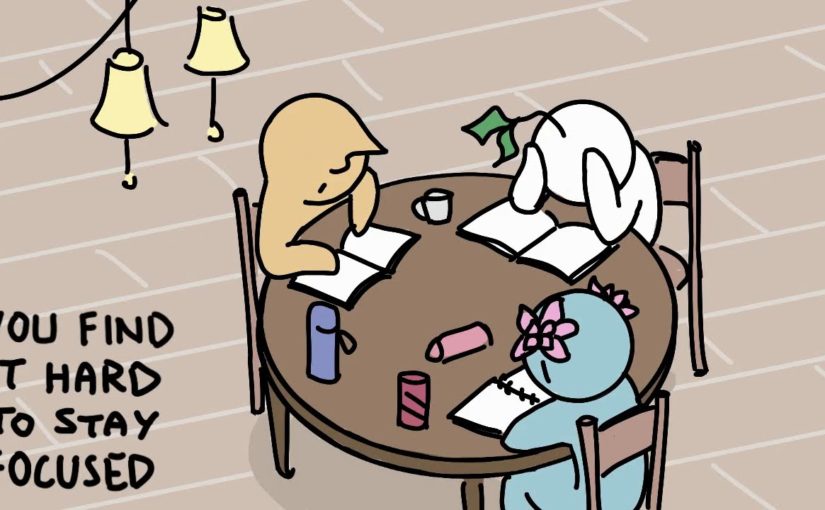

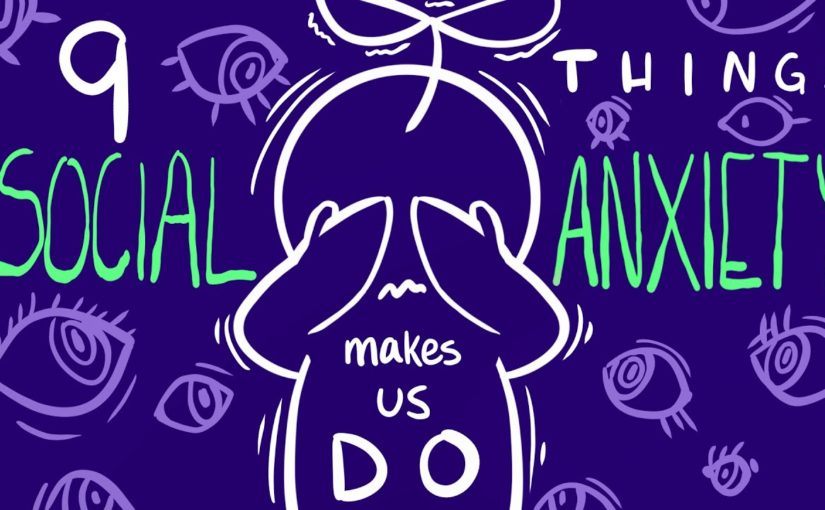
 It can be a lot easier to act busy rather than face the awkwardness of an unwanted conversation. So, this can become a habit of avoidance. If you have social anxiety, five constantly worrying about how everyone sees you. According to the Anxiety and Depression Association of America, those with a social anxiety disorder are increasingly concerned about how they are perceived by others. The last thing they want is to come off as awkward, fumbling, or boring. You’ve likely felt this way at some point throughout your life, whether it’s the desire to fit in with friends or make a good impression on a potential employer with social anxiety. However, this pressure to perform feels constantly heavy and can lead to full-blown panic attacks when in social or performance-based situations Number six is feeling lonely. Even when you’re surrounded by people, People with social anxiety can share this feeling with those who battle, depression and other mental illnesses as well. So, unfortunately, a lot of people can relate to this isolating feeling When social anxiety keeps you from being your true self. It can be difficult to feel included at all. It’s frustrating to be close to others, but not be able to connect with them in a comfortable way. If you’re struggling to effectively communicate and are extremely hesitant to even start a conversation that adds to your feelings of loneliness, even when you’re, surrounded by others, Number seven clenching your teeth and other physical discomforts, you feel shaky or lightheaded when faced with A social situation: Does your heart rate speed up or do your hands tremble? The stress that comes with social anxiety can manifest through physical symptoms. Many of the symptoms are signs of nervousness such as sweating, flushing, and feeling shaky According to Mayo Clinic. You might also be dealing with muscle tension, feeling that your mind has gone blank, or having trouble catching your breath. Number eight obsessing over how you look When you’re, constantly worried about how others perceive you. You’re likely to be concerned with how you look as well. You might have a distorted body image and think that you’re less physically attractive. Your thoughts can flit from your hair to your clothes or flaws in your skin. Thinking that it’s just all wrong In an attempt to feel comfortable in your own skin, you might spend an inappropriate amount of time and money on fixing your appearance, such as shopping for better clothes, getting high-end beauty products, or going on diets. If you think you’re overweight and number nine, you feel more like yourself around the people. You’re comfortable with Yourself, think you’re picky about who you spend time with, and triumph over shyness by conquering social anxiety disorder, Dr. Marie B. Stein and John R. Walker discusses behavior in children called selective mutism. This is when a child speaks and acts normally around select individuals but is completely silent around everyone else or when placed in certain situations. This is a more extreme example, but it shows how those with social anxiety are more likely to relax and open up around people. They already know and trust, do you or anyone you know resonate with any of these points mentioned in this video? If you’re concerned about social anxiety disorder, we encourage you to speak with a mental health professional. They can help you overcome any fears or debilitating problems you might have If you enjoyed watching this video, give us a thumbs up and share it with someone who might find it helpful as well. The studies and references used in this video are listed in the description below Don’t forget to hit the subscribe button for more Psych2go videos and as always thanks for watching and we’ll see you next time.
It can be a lot easier to act busy rather than face the awkwardness of an unwanted conversation. So, this can become a habit of avoidance. If you have social anxiety, five constantly worrying about how everyone sees you. According to the Anxiety and Depression Association of America, those with a social anxiety disorder are increasingly concerned about how they are perceived by others. The last thing they want is to come off as awkward, fumbling, or boring. You’ve likely felt this way at some point throughout your life, whether it’s the desire to fit in with friends or make a good impression on a potential employer with social anxiety. However, this pressure to perform feels constantly heavy and can lead to full-blown panic attacks when in social or performance-based situations Number six is feeling lonely. Even when you’re surrounded by people, People with social anxiety can share this feeling with those who battle, depression and other mental illnesses as well. So, unfortunately, a lot of people can relate to this isolating feeling When social anxiety keeps you from being your true self. It can be difficult to feel included at all. It’s frustrating to be close to others, but not be able to connect with them in a comfortable way. If you’re struggling to effectively communicate and are extremely hesitant to even start a conversation that adds to your feelings of loneliness, even when you’re, surrounded by others, Number seven clenching your teeth and other physical discomforts, you feel shaky or lightheaded when faced with A social situation: Does your heart rate speed up or do your hands tremble? The stress that comes with social anxiety can manifest through physical symptoms. Many of the symptoms are signs of nervousness such as sweating, flushing, and feeling shaky According to Mayo Clinic. You might also be dealing with muscle tension, feeling that your mind has gone blank, or having trouble catching your breath. Number eight obsessing over how you look When you’re, constantly worried about how others perceive you. You’re likely to be concerned with how you look as well. You might have a distorted body image and think that you’re less physically attractive. Your thoughts can flit from your hair to your clothes or flaws in your skin. Thinking that it’s just all wrong In an attempt to feel comfortable in your own skin, you might spend an inappropriate amount of time and money on fixing your appearance, such as shopping for better clothes, getting high-end beauty products, or going on diets. If you think you’re overweight and number nine, you feel more like yourself around the people. You’re comfortable with Yourself, think you’re picky about who you spend time with, and triumph over shyness by conquering social anxiety disorder, Dr. Marie B. Stein and John R. Walker discusses behavior in children called selective mutism. This is when a child speaks and acts normally around select individuals but is completely silent around everyone else or when placed in certain situations. This is a more extreme example, but it shows how those with social anxiety are more likely to relax and open up around people. They already know and trust, do you or anyone you know resonate with any of these points mentioned in this video? If you’re concerned about social anxiety disorder, we encourage you to speak with a mental health professional. They can help you overcome any fears or debilitating problems you might have If you enjoyed watching this video, give us a thumbs up and share it with someone who might find it helpful as well. The studies and references used in this video are listed in the description below Don’t forget to hit the subscribe button for more Psych2go videos and as always thanks for watching and we’ll see you next time.
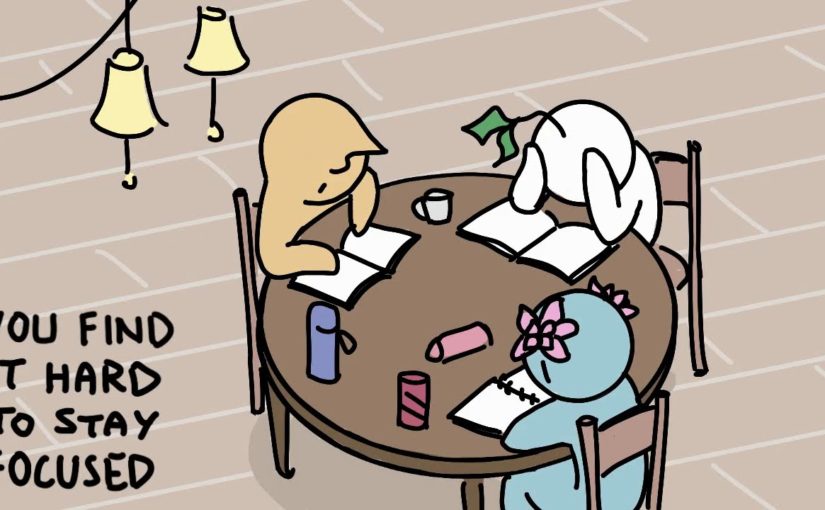
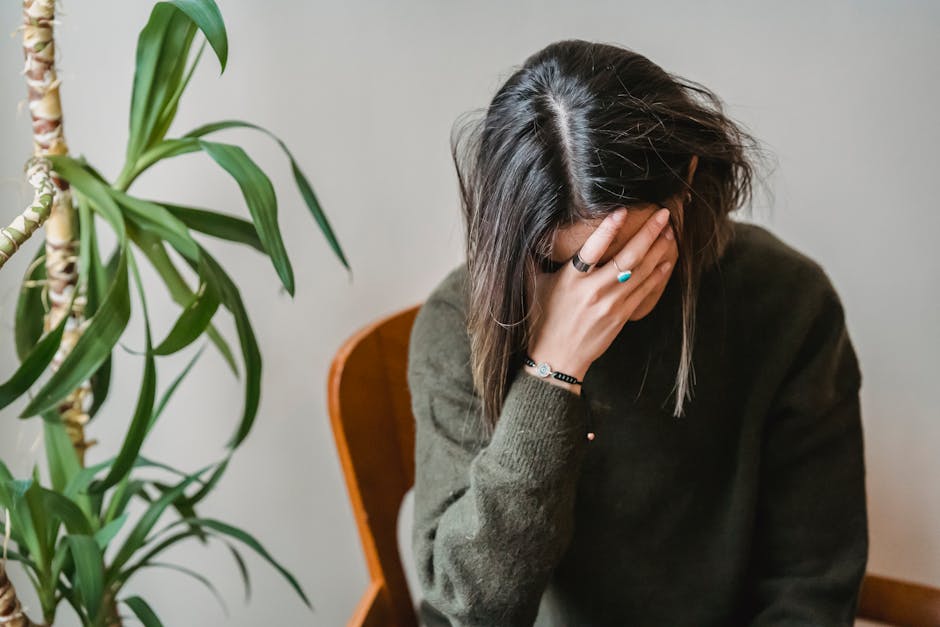 Is one more likely than
the other to take place? Number four, you have no clue if others can sense your anxiety. Do you worry about whether
Or can no other people tell when you’re feeling anxious? And then are you doubly
worried about how someone will react if they do find out
you’re having a panic attack? Since no people experience
anxiety the same way nor are any two situations the same, there’s no tangible way to tell
unless you tell someone that you’re not feeling well. If anything, your anxiety
is not as noticeable as you fear it to be. There are so many other restless, sweaty, awkward people in the world and everyone else is probably
too worried about themselves that they’re less likely to notice if you look a little
flushed or acted a little odd. Five, you can literally
worry yourself sick. Have you ever been so stressed
and worried that you felt like you might throw up or pass out? When you suffer from anxiety,
These severe reactions become normal which can put immense stress on your body over time. Mayo Clinic states that
symptoms such as headaches, heart palpitations, and
Gastrointestinal issues are common expressions of anxiety. Dealing with these over
an extended period of time can lead to complications such
as irritable bowel syndrome and other chronic disruptions
in the nervous system. Six, self-doubt slows you down socially. Do you long to be out and
about with your friends but your anxiety and doubt convince you to stay home instead? Socializing can be incredibly stressful for someone with anxiety, especially if you have
social anxiety disorder which is specific to
public or group settings. Between physical symptoms
and a racing mind, keeping up a conversation with
your friends can be tricky. Your brain interrupts with
intrusive thoughts and questions and you wonder if you’re doing it right. If you notice that you’re worrying about whether your anxiety makes
you come across as awkward or quiet, that’s okay. It’s good to be aware
of your effect on others but make sure you’re trying your best to be genuine and be you. Living in today’s society is
a lot of pressure already, so there’s no need to
double down on yourself. Seven, you find it hard to stay focused, you find
It is hard to stay focused. When your anxiety is bad, do
you struggle to concentrate? Like, when you must
reread a page in a book a couple of times over before you finally comprehend what you’re reading. Recent BBC research cites a 2011 study from the University of Notre Dame, which confirms that the
brain is designed to hold only so much information at once. If you’re taking up that
space with tons of what-ifs and worries, there won’t be much room left for anything else. Changing your thought patterns
won’t happen overnight but it’s certainly possible. It will likely take some trial and error to find what works for you
but practicing mindfulness, getting exercise, and avoiding multitasking are a few good places to start. And number eight, yes, you can have anxiety
about your anxiety. Have you ever heard of agoraphobia? The UK National Health
Service defines agoraphobia as a fear of being in
situations where escape might be difficult or that
help wouldn’t be available if things go wrong. Most people who suffer from this condition practice avoidance. Some might refuse to take
public transportation or be in crowded or open spaces, while others may not
leave their house at all. Avoidance aims to protect you from danger, panic, and even embarrassment. Did you relate to any of these scenarios? Tell us about it in the comments below. Anxiety is tough but so are you. If you have any other tips that
help you with your anxiety, share them in the comments below. If you found this video
helpful, please like and share this video with someone who can benefit from it too. The studies and references used are listed in the description below. Don’t forget to hit the subscribe button and the notification bell icon
for more psych2 go videos. Thank you for watching and
We’ll see you next time.
Is one more likely than
the other to take place? Number four, you have no clue if others can sense your anxiety. Do you worry about whether
Or can no other people tell when you’re feeling anxious? And then are you doubly
worried about how someone will react if they do find out
you’re having a panic attack? Since no people experience
anxiety the same way nor are any two situations the same, there’s no tangible way to tell
unless you tell someone that you’re not feeling well. If anything, your anxiety
is not as noticeable as you fear it to be. There are so many other restless, sweaty, awkward people in the world and everyone else is probably
too worried about themselves that they’re less likely to notice if you look a little
flushed or acted a little odd. Five, you can literally
worry yourself sick. Have you ever been so stressed
and worried that you felt like you might throw up or pass out? When you suffer from anxiety,
These severe reactions become normal which can put immense stress on your body over time. Mayo Clinic states that
symptoms such as headaches, heart palpitations, and
Gastrointestinal issues are common expressions of anxiety. Dealing with these over
an extended period of time can lead to complications such
as irritable bowel syndrome and other chronic disruptions
in the nervous system. Six, self-doubt slows you down socially. Do you long to be out and
about with your friends but your anxiety and doubt convince you to stay home instead? Socializing can be incredibly stressful for someone with anxiety, especially if you have
social anxiety disorder which is specific to
public or group settings. Between physical symptoms
and a racing mind, keeping up a conversation with
your friends can be tricky. Your brain interrupts with
intrusive thoughts and questions and you wonder if you’re doing it right. If you notice that you’re worrying about whether your anxiety makes
you come across as awkward or quiet, that’s okay. It’s good to be aware
of your effect on others but make sure you’re trying your best to be genuine and be you. Living in today’s society is
a lot of pressure already, so there’s no need to
double down on yourself. Seven, you find it hard to stay focused, you find
It is hard to stay focused. When your anxiety is bad, do
you struggle to concentrate? Like, when you must
reread a page in a book a couple of times over before you finally comprehend what you’re reading. Recent BBC research cites a 2011 study from the University of Notre Dame, which confirms that the
brain is designed to hold only so much information at once. If you’re taking up that
space with tons of what-ifs and worries, there won’t be much room left for anything else. Changing your thought patterns
won’t happen overnight but it’s certainly possible. It will likely take some trial and error to find what works for you
but practicing mindfulness, getting exercise, and avoiding multitasking are a few good places to start. And number eight, yes, you can have anxiety
about your anxiety. Have you ever heard of agoraphobia? The UK National Health
Service defines agoraphobia as a fear of being in
situations where escape might be difficult or that
help wouldn’t be available if things go wrong. Most people who suffer from this condition practice avoidance. Some might refuse to take
public transportation or be in crowded or open spaces, while others may not
leave their house at all. Avoidance aims to protect you from danger, panic, and even embarrassment. Did you relate to any of these scenarios? Tell us about it in the comments below. Anxiety is tough but so are you. If you have any other tips that
help you with your anxiety, share them in the comments below. If you found this video
helpful, please like and share this video with someone who can benefit from it too. The studies and references used are listed in the description below. Don’t forget to hit the subscribe button and the notification bell icon
for more psych2 go videos. Thank you for watching and
We’ll see you next time.
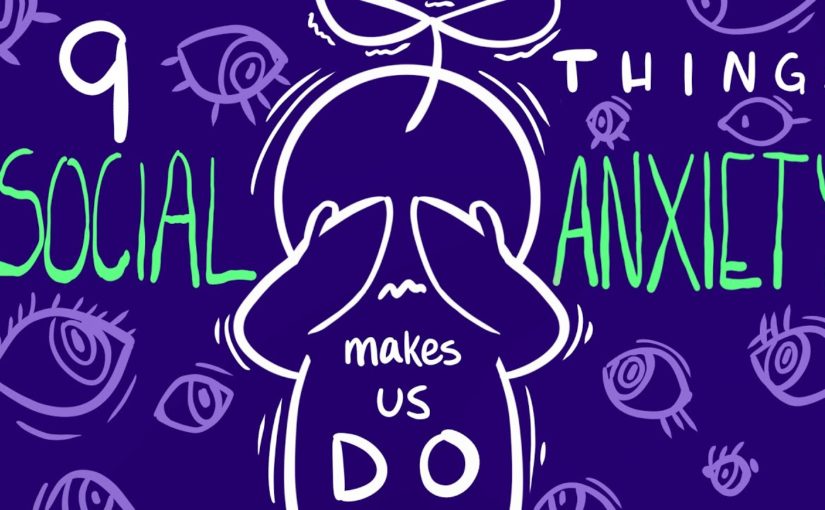
 The last thing they want
is to come off as awkward, fumbling, or boring. You’ve likely felt this way at some point throughout your life, whether it’s the desire
to fit in with friends or make a good impression
on a potential employer, with social anxiety however, this pressure to perform
feels constantly heavy and can lead to full-blown panic attacks when in social or
performance-based situations. Number six is feeling lonely, even when you’re surrounded by people. People with social anxiety
can share this feeling with those who battle depression and other mental illnesses as well. So, unfortunately, a lot
of people can relate to this isolating feeling. When social anxiety keeps you
from being your true self, it can be difficult to
feel included at all. It’s frustrating to be close to others, but not be able to connect
with them comfortably. If you’re struggling
to properly communicate and are extremely hesitant
to even start a conversation, that adds to your feelings of loneliness, even when you’re surrounded by others. Number seven, clenching your teeth and other physical discomforts. You feel shaky or lightheaded when faced with a social situation. Does your heart rate speed
up, or do your hands tremble? The stress that comes with social anxiety can manifest through physical symptoms. Many of the symptoms are
signs of nervousness, such as sweating, flushing,
and feeling shaky. According to the Mayo Clinic, you might also be dealing
with muscle tension, feeling that your mind has gone blank, or having trouble catching your breath. Number eight, obsessing over how you look. When you’re constantly worried about how others perceive you, you’re likely to be concerned
with how you look as well. You might have a distorted body image and think that you’re less
physically attractive. Your thoughts can flit from
your hair to your clothes or flaws in your skin, thinking
that it’s just all wrong. In an attempt to feel
comfortable in your skin, you might spend an inappropriate
amount of time and money on fixing your appearance, such as shopping for better clothes, getting high-end beauty
products, or going on diets if you think you’re overweight. And number nine, you
feel more like yourself around the people you’re comfortable with. You think you’re picky about
who you spend time with and triumph over shyness, conquering social anxiety disorder, Dr. Marie B. Stein and John R. Walker discuss behavior in children
called selective mutism. This is when a child
speaks and acts normally around select individuals,
but is completely silent around everyone else, or when
placed in certain situations, this is a more extreme example, but it shows how those with social anxiety are more likely to relax and open up around people they already know and trust. Do you or anyone you know resonate with any of these points
mentioned in this video? If you’re concerned about
social anxiety disorder, we encourage you to speak with
a mental health professional, they can help you overcome any fears or debilitating problems you might have. If you enjoyed watching this
video, give us a thumbs up and share it with someone who
might find it helpful as well. The studies and references
used in this video are listed in the description below. Don’t forget to hit the subscribe button for more Psych2go videos and as always, thanks for watching, and we’ll see you next time.
The last thing they want
is to come off as awkward, fumbling, or boring. You’ve likely felt this way at some point throughout your life, whether it’s the desire
to fit in with friends or make a good impression
on a potential employer, with social anxiety however, this pressure to perform
feels constantly heavy and can lead to full-blown panic attacks when in social or
performance-based situations. Number six is feeling lonely, even when you’re surrounded by people. People with social anxiety
can share this feeling with those who battle depression and other mental illnesses as well. So, unfortunately, a lot
of people can relate to this isolating feeling. When social anxiety keeps you
from being your true self, it can be difficult to
feel included at all. It’s frustrating to be close to others, but not be able to connect
with them comfortably. If you’re struggling
to properly communicate and are extremely hesitant
to even start a conversation, that adds to your feelings of loneliness, even when you’re surrounded by others. Number seven, clenching your teeth and other physical discomforts. You feel shaky or lightheaded when faced with a social situation. Does your heart rate speed
up, or do your hands tremble? The stress that comes with social anxiety can manifest through physical symptoms. Many of the symptoms are
signs of nervousness, such as sweating, flushing,
and feeling shaky. According to the Mayo Clinic, you might also be dealing
with muscle tension, feeling that your mind has gone blank, or having trouble catching your breath. Number eight, obsessing over how you look. When you’re constantly worried about how others perceive you, you’re likely to be concerned
with how you look as well. You might have a distorted body image and think that you’re less
physically attractive. Your thoughts can flit from
your hair to your clothes or flaws in your skin, thinking
that it’s just all wrong. In an attempt to feel
comfortable in your skin, you might spend an inappropriate
amount of time and money on fixing your appearance, such as shopping for better clothes, getting high-end beauty
products, or going on diets if you think you’re overweight. And number nine, you
feel more like yourself around the people you’re comfortable with. You think you’re picky about
who you spend time with and triumph over shyness, conquering social anxiety disorder, Dr. Marie B. Stein and John R. Walker discuss behavior in children
called selective mutism. This is when a child
speaks and acts normally around select individuals,
but is completely silent around everyone else, or when
placed in certain situations, this is a more extreme example, but it shows how those with social anxiety are more likely to relax and open up around people they already know and trust. Do you or anyone you know resonate with any of these points
mentioned in this video? If you’re concerned about
social anxiety disorder, we encourage you to speak with
a mental health professional, they can help you overcome any fears or debilitating problems you might have. If you enjoyed watching this
video, give us a thumbs up and share it with someone who
might find it helpful as well. The studies and references
used in this video are listed in the description below. Don’t forget to hit the subscribe button for more Psych2go videos and as always, thanks for watching, and we’ll see you next time.